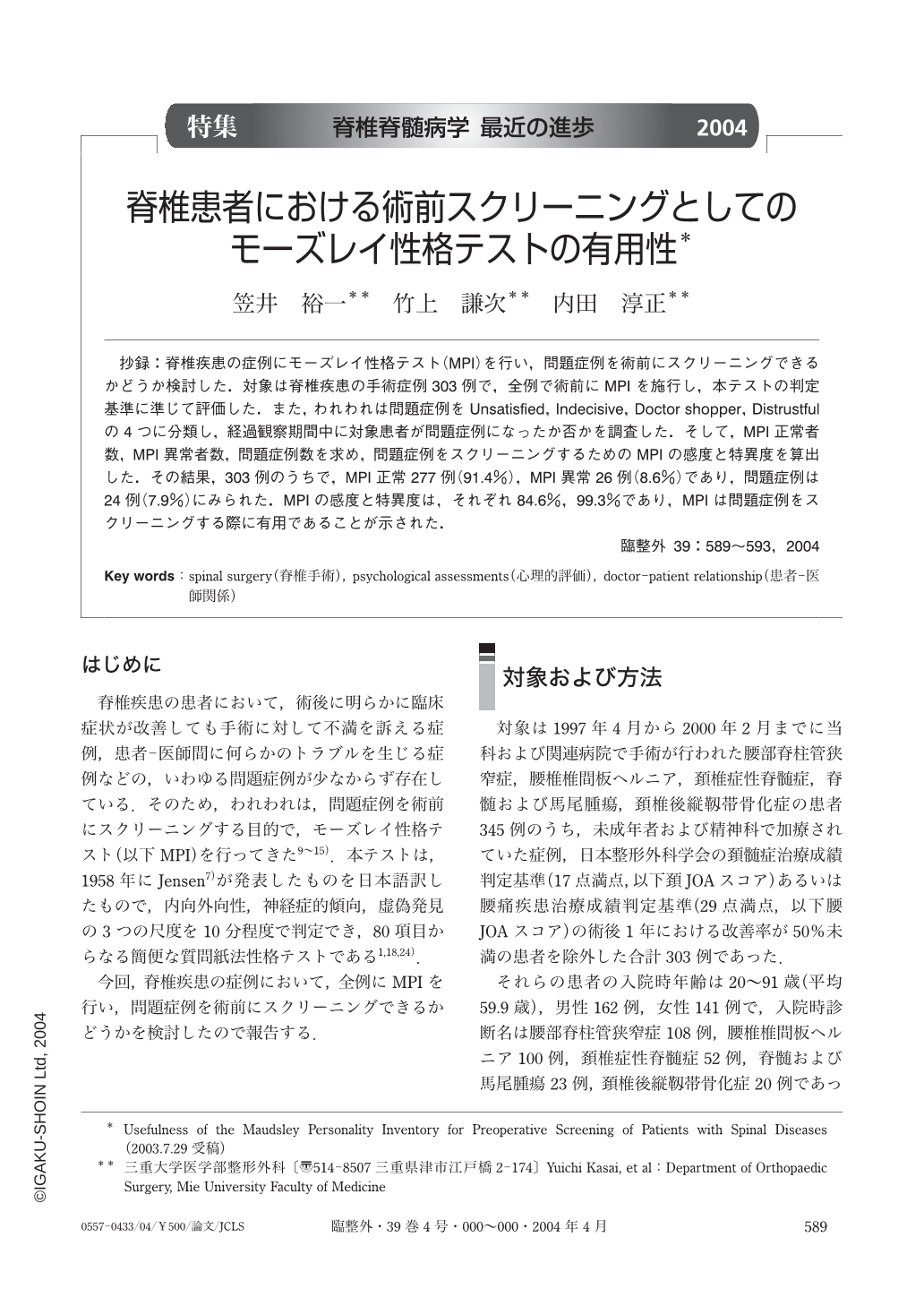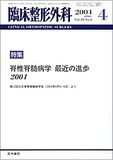Japanese
English
- 有料閲覧
- Abstract 文献概要
- 1ページ目 Look Inside
抄録:脊椎疾患の症例にモーズレイ性格テスト(MPI)を行い,問題症例を術前にスクリーニングできるかどうか検討した.対象は脊椎疾患の手術症例303例で,全例で術前にMPIを施行し,本テストの判定基準に準じて評価した.また,われわれは問題症例をUnsatisfied,Indecisive,Doctor shopper,Distrustfulの4つに分類し,経過観察期間中に対象患者が問題症例になったか否かを調査した.そして,MPI正常者数,MPI異常者数,問題症例数を求め,問題症例をスクリーニングするためのMPIの感度と特異度を算出した.その結果,303例のうちで,MPI正常277例(91.4%),MPI異常26例(8.6%)であり,問題症例は24例(7.9%)にみられた.MPIの感度と特異度は,それぞれ84.6%,99.3%であり,MPIは問題症例をスクリーニングする際に有用であることが示された.
The purpose of this study was to determine whether the Maudsley Personality Inventory (MPI) is useful for identifying problem patients with spinal diseases. We prospectively administered the MPI to 303 spinal disease patients who were about to undergo surgery. Problem patients were classified into Unsatisfied, Indecisive, Doctor shoppers, or Distrustful. The numbers of patients with normal and abnormal scores according to the MPI and the number of problem patients were compared, and the sensitivity and specificity of the MPI were calculated. On the basis of the preoperative MPI 277 patients (91.4%) were classified as normal and 26 patients (8.6%) as abnormal. Of the 303 subjects, 24 were identified as problem patients (7.9%). Twenty-two of the 26 abnormal patients according to the MPI became problem patients, whereas only 2 of the 277 normal patients became problem patients. The sensitivity and specificity of the MPI were 84.6% and 99.3%, respectively. In conclusion, preoperative administration of the MPI to spinal disease patient was found to be a very useful means of identifying problem patients.

Copyright © 2004, Igaku-Shoin Ltd. All rights reserved.


